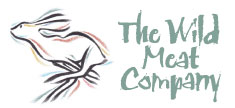Are Vegan Meat Alternatives as Healthy or Sustainable as Wild Meat?
by Annabel Warne February 14 2022
This year, the number of people taking part in Veganuary reached record numbers and supermarkets and fast-food chains around the country have been cashing in on the demand for vegan products. But just how healthy are the latest ‘plant-based’ alternatives to meat?

We took a closer look to see how some of the most popular vegan meat alternatives compared nutritionally to wild meat.
Why has veganism become so popular?
Concerns about the climate impact of industrial meat farming have persuaded growing numbers to eschew meat and become vegans. But there are other options. Choosing to eat wild game from species whose populations need to be managed is one way people can – and should – continue to eat meat without harming the planet. As we explained in a previous blog, over three quarters of the emissions calculated for wild venison were linked to the methane emitted by the deer. Not eating them wouldn’t stop them producing that methane! And allowing deer numbers to continue at current growth rates would result in even more climate-damaging gases being produced. Significant emissions would also be produced if deer were culled and the nutritious meat was incinerated or left to go to waste.

Photograph © Miles Cook
Our locally sourced wood pigeon, wild rabbit and squirrel are also highly sustainable options with low carbon footprints, as their populations need to be managed.
Animal welfare concerns are another driver behind the rise in veganism. But it is possible to keep eating meat while caring about animals, as we explained in our blog which looked at the importance of “meat consciousness”. As well as offering customers the chance to enjoy abundant sustainable wild game, we’re proud to sell free-range meat and poultry produced by farmers who care deeply about the welfare of their animals, as well as the planet.
Ultra-processed vegan foods
Vegan diets are often portrayed as a healthy choice. “Join the Goodness Movement”, one brand enthuses on its packaging – but just how much goodness is in its products? And what else is lurking in them too?
James Gallagher investigated the health claims of vegan foods for Radio 4's Inside Health, and raised concerns about the impact of a diet in which ultra-processed vegan foods replaced whole foods.
“Ultimately, meat and fish are never going to be a processed food, because they are a single ingredient food,” explained Sophie Medlin, Dietician and Chair of the British Dietetic Association for London.
“When we get into trying to replicate them from plant products, we are definitely going to have to process them in order for them to look and feel and taste in any way palatable… The more you’re trying to make something imitate something that it’s not, the more processing it’s going to have to go through.”
The problem with ultra-processed foods lies in what is taken out – and added – during this process, Dr Giles Yeo, an obesity expert at Cambridge University, explained. Not only do processed foods tend to be low in protein and fibre, but they’re also usually high in salt, sugar and fat. And this is what makes them “hyper-palatable” – and is causing an increase in obesity and other diet-related illnesses. Yet, “ultra-processed vegetarian or vegan foods, faux-meat burgers, they almost have an aura, a halo of health around them,” says Yeo. “They’re ultra-processed foods with very good PR.”
Nutrition labels
We took a closer look at the label on a 100g plant-based vegan ‘steak’ to see how it stacked up against the nutritional values of a 100g wild venison steak, as analysed by Eat Game.
First of all, we counted the number of ingredients listed on the packaging. Our vegan steak listed a whopping 21 ingredients, including rehydrated soya and wheat protein, sugar cane fibres, thickener [methylcellulose], colours, maltodextrin and salt. There was no need to count the ingredients on our wild venison steak’s label: it contains just one. Locally shot wild venison.

With 19% protein, the vegan steak is proud to call itself ‘high protein’. Yet even here the vegan alternative cannot compete with wild venison’s naturally higher 23.4% protein content.
The vegan steak’s 2.1mg iron is the result of iron being added (‘vitamins and minerals [vitamin B12, iron’] are the product’s 21st listed ingredient). It is important to remember, though, that our bodies absorb iron less well from plant-based foods than from meat, so you need to eat lots of foods rich in vitamin C, such as fresh fruits and vegetables, to prevent much of the iron in a vegan steak passing straight through you, unabsorbed. A wild venison steak, on the other hand, naturally contains 2.4mg of iron that the body can absorb more easily.
What the vegan steak does have more of than our wild venison steak, however, is calories, fat, sugar and salt.
- A 100g vegan steak contains 203 calories, compared to a wild venison’s steak 104 calories.
- A 100g vegan steak contains 10g fat, compared to a wild venison steak’s 1g fat.
- A 100g vegan steak contains 7g carbohydrate and 1.2 g sugars, compared to wild venison’s 0g carbohydrate and 0g sugars.
- A 100g vegan steak contains 1.2g salt (20% of your recommended daily intake), compared to only minimal amounts naturally present in wild venison.
A sustainable diet is a healthy diet
When seeking to eat more sustainably, it’s important to remember that a diet is only sustainable if it is also healthy and does not lead to future health problems. Replacing meat with ultra-processed vegan foods won’t benefit your health. But choosing to eat ‘less and better’ meat as part of a balanced diet that also includes a variety of fresh fruits and vegetables will.
Want to put sustainable wild game on your menu next week? Browse our tasty recipes.

